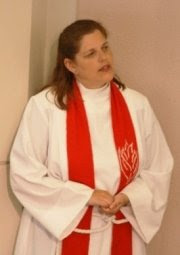The next section of the Bible Challenge has the books called The Minor Prophets. They are called this not because they are less important, but because they are shorter than the Major Prophets (Isaiah, Jeremiah & Lamentations). These books span a period of about 400 years beginning about 800 years before the birth of Christ.
When we hear the word prophecy we think about people predicting the future. That is not really what Biblical literature means by prophecy. In the context of the Bible prophets are people chosen by God to deliver a message to the leaders, the people or both. Usually this involves telling the king, the religious leaders and/or the people that they have strayed from the ways of God and that they better shape up. Prophecy usually includes the hope that God will not forsake the people, that God will rescue the people etc.... but that message is in the context of the admonition to shape up and return to the ways of God.
Hosea: This book is basically a rejection of Israel's politics and religious practice. Hosea appeals to the history of Israel to remind the people that God is their savior and to remind them that faithful love and kindness are the responses that God requires of them. The book is dated between 750 and 732 BCE.
Joel: This books falls into two sections, the first two chapters, which focus on plague and drought and chapters three and four which focuses on the coming of the Day of the Lord. This book is hard to date, a majority of scholars place it after 515 BCE., but a strong minority place it much earlier, from 837 - 800 BCE.
Amos: This book mostly consists of a series of oracles. You will find four themes in the book: Judgement; Social Justice; Religious Practice and Ignoring the Word of God. In all of these areas Amos (and God) find the people wanting. Internal evidence places this book between 786 and 742 BCE.
Obadiah: Nearly the entirety of the book is oracles against the nation of Edom, a traditional enemy of Israel. It concludes with a warning of the coming of the Day of the Lord which will include punishment for all nations. The book was written no earlier than 587 BCE and no later than 312 BCE.
Micah: Calls the people out on their rejection of God. He sees punishment coming. Sin is the reason for that and the King of Assyria will be the tool God uses. The book is dated to between 740 and 687 BCE.
Nahum: In this book the prophecy is largely through poetry. There is only one message to this book, God will execute judgement on Ninevah (the capital of the Assyrian empire). The book is usually dated to between 663 and 612 BCE.
Habakkuk: Some scholars believe that this book in mostly made up of prophecy written for use in worship. Nearly unique in prophetic literature, this book directions questions to God directly and calls God's justice into question. This book is very hard to date, but it is usually placed between 626 BCE and the fall of Jerusalem to the Babylonians in 587 BCE.
Zephaniah: Written at a time of great political turmoil, the book's dominant theme is the coming of the Day of the Lord, when God will punish both the nations who are enemies of Israel and the people of Israel themselves and will purify the nation. This book is dated to between 640 and 609 BCE.
Haggai: Haggai was one of the people responsible for the rebuilding of the temple in Jerusalem following the captivity of much of the nation of Israel in Babylon. This book is an effort encourage the people in that effort. The book is dated to between 521 and 486 BCE.
Zechariah: This is actually two different books, probably by two different authors. Chapters 1 to 8 are the first part, the second is chapters 9 - 14. It is difficult to precisely date either part, but in and around the end of the Babylonian captivity, around 500 BCE seems likely.
Malachi: Malachi is directed at the priests and it calls them to reform and return to the true worship of God. It is dated to after 515 BCE.
Subscribe to:
Post Comments (Atom)

No comments:
Post a Comment